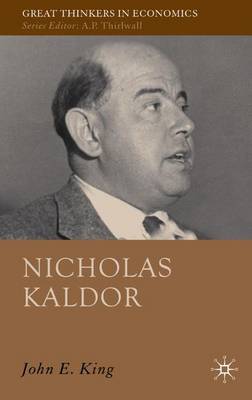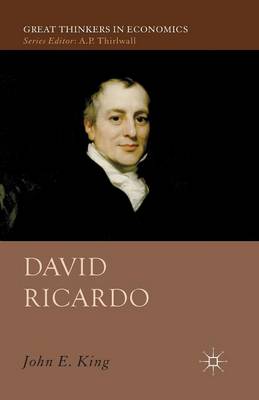Great Thinkers in Economics
2 total works
Nicholas Kaldor spent his childhood in Hungary before settling in London and absorbing the influences of Hayek and Keynes, among others. By the end of the 1930s, he had risen to the peak of his profession, and his work on equilibrium, welfare economics, trade cycles, growth theory, and the economics of 'total war' were seminal. His wartime writings influenced the creation of the huge social democratic majority that resulted in the Labour landslide of 1945, and his work on postwar reconstruction looked forward to the possibility of a genuinely new and better form of society. In 1949 Kaldor moved to Cambridge and was one of the architects of the post-Keynesian growth and distribution theory. The decades after the Second World War saw Kaldor play a central part in British economic policy. In the 1980s he proved to be a powerful opponent of monetarism, and his arguments found an audience both inside and outside the economics profession.
This book explores the life and work of Nicholas Kaldor, examining the influences that shaped and inspired his writings and opinions, and looking in detail at the crucial part he played in twentieth-century economics, from both a theoretical and a policy perspective. Offering a comprehensive intellectual portrait, the book explains this great economist's importance in his own time and in ours.
This book explores the life and work of Nicholas Kaldor, examining the influences that shaped and inspired his writings and opinions, and looking in detail at the crucial part he played in twentieth-century economics, from both a theoretical and a policy perspective. Offering a comprehensive intellectual portrait, the book explains this great economist's importance in his own time and in ours.
This book offers a new account of David Ricardo's political economy that is both scholarly and accessible. It provides a detailed overview of the secondary literature on Ricardo down to 2012, and discusses alternative perspectives on his work, including those of Marxians, neoclassicals and Sraffians.

